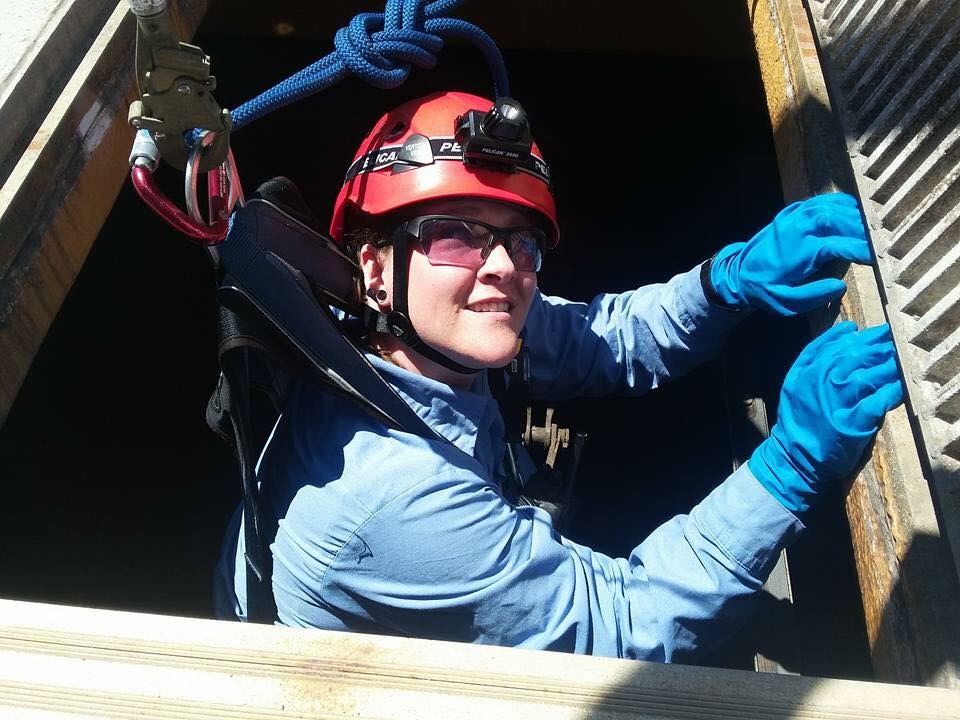
CWEA Sacramento Area Section’s Outstanding Young Professional and Emerging Leader, Amanda Bird
“I love this profession,” she says, “and I definitely see us going in the net zero direction. My career will be working toward that goal.” “It’s her dream,” said Tram Nguyen, who nominated her as an Emerging Leader.
She’s well prepared. After receiving a bachelor’s degree from Portland State in environmental studies, Bird pursued a master’s degree in that field at the University of San Francisco, commuting on Saturdays for two years to complete it.
She holds both drinking water treatment and distribution licenses, in addition to her wastewater operator certification. Her thesis on struvite as an alternative phosphorus fertilizer resource has been downloaded over 2,250 times, according to Nguyen.
Prior to Santa Cruz, she served as an operator at Watsonville and South County Regional Facility. At Watsonville, Bird got involved with the Monterey Bay Section of the CWEA. She is now vice president f that organization, preparing to be president next year.
Her forward-looking vision has improved communications and efficiency within the section. “I’m not a millennial, nor an X-generation member,” she says. “I feel like I can communicate across different age groups and interact with them successfully.
For example, she has organized section emails and other digital communications so that the older generation can communicate with the younger members, and vice versa. “We were struggling, because we were delivering events and messages from an old perspective,” she explains. “Now we use the cloud, and it’s made it easier for the younger generation to be involved. Everyone is on Google Drive.”
It’s working. Bird says the new communications tools helped draw 125 people to a recent banquet—fully one quarter of the membership. Plus, Bird says, by using devices like Survey Monkey, the section is getting new participation from areas the group was never able to reach before.
“She is uniquely placed generationally between the older operators who achieved the transition to activated sludge and tertiary treatment through sheer will-power, and the younger generation just now entering the work force who are more academically oriented with less hands-on experience,” said Nguyen. “She works well as a conduit of information between these two very different generational groups that are having to interact for the first time in the work force.”